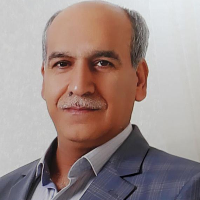The Impact of Education on the Basis of the Theory of Planned Behavior on the Level and Method of Supervision of Their Parents on Watching Television by Students
Author(s):
Abstract:
Background And Aim
Currently TV is a medium used by all family members and especially children. Excessive an dun controlled use of television by children expose them to some risks such developmental, social and psychological disorders. With regard to the important role of parents in their children's education and control of effective parameters on their children’s health promotion, this study aimed to determine the impact of education on the basis of the theory of planned behavior on the level and method of supervision of their parents on watching television by students in 2012.Material And Methods
This quasi-experimental study was performed on 120 parents of students of the first grade and the fifth grade of primary schools in Gonabad who were randomly assigned into two interventional and control groups. Demographic and research information related to theory structures of planned behavior, knowledge and parents function and hours of television watch in gby children were collected by using a self-report question nairesat the time of intervention and one month later. Content Validity Ratio (CVR), Content Validity Index (CVI),panel of experts and its reliability for psychometric questionnaires were taken into account. Intervention was implemented with a teaching manual “children and television"inthree45-60minutesessionsfor parents of students in the intervention group in four groups of 15 people using group discussion focused on the theory structural of planned behavior. The data were analyzed usingSPSS-20softwareand Paired T-test, Independent T- test, Mann-Whitney, Wilcox on statistical tests.Results
Before the intervention, there was no significant difference between the two groups in terms of demographic variables, the average hours of watching television by children, parents knowledge score and the mean of theory structures of planned behavior score. But after the intervention, significant differences in the average hours of watching television by children(from 6.74±2.02 to 4.28±2.40) (P=0.039),knowledge score(from 5.8±2.1to7.7±1.9) (P= 0.001),attitude structure scores(from 35.5±11.5to48.4±8.9) (P=0.003),subjective e norm(from 11.8±8.1 to24.5±8.6) (P>0.001)and behavioral intention(from18.6±7.4 to31.8±5.1) (P=0.001)were observed but no significant changes in the sevariables were observed in the control group. Conclusion
The result ssuggest that the educational intervention based on the theory structure of planned behavior can change knowledge, attitude, subjective norm, and behavioral intention of their parents in monitoring and controlling their children's television watching and improve the parents monitoring performance and can result in reducing watching television by their children. Using this teaching models recommended to improve parenting practices on other behavioral problems in children.Keywords:
Language:
Persian
Published:
Journal of Torbat Heydariyeh University of Medical Sciences, Volume:1 Issue: 4, 2014
Pages:
7 to 17
https://magiran.com/p1313988
دانلود و مطالعه متن این مقاله با یکی از روشهای زیر امکان پذیر است:
اشتراک شخصی
با عضویت و پرداخت آنلاین حق اشتراک یکساله به مبلغ 1,390,000ريال میتوانید 70 عنوان مطلب دانلود کنید!
اشتراک سازمانی
به کتابخانه دانشگاه یا محل کار خود پیشنهاد کنید تا اشتراک سازمانی این پایگاه را برای دسترسی نامحدود همه کاربران به متن مطالب تهیه نمایند!
توجه!
- حق عضویت دریافتی صرف حمایت از نشریات عضو و نگهداری، تکمیل و توسعه مگیران میشود.
- پرداخت حق اشتراک و دانلود مقالات اجازه بازنشر آن در سایر رسانههای چاپی و دیجیتال را به کاربر نمیدهد.
In order to view content subscription is required
Personal subscription
Subscribe magiran.com for 70 € euros via PayPal and download 70 articles during a year.
Organization subscription
Please contact us to subscribe your university or library for unlimited access!


